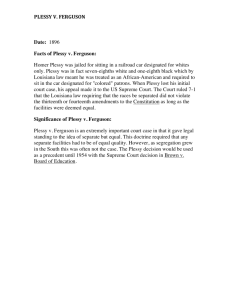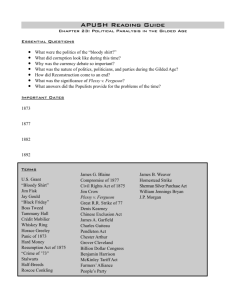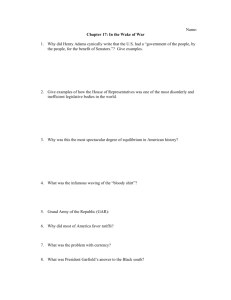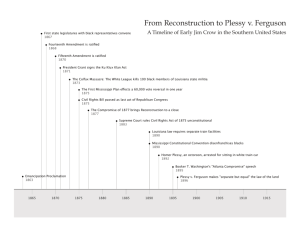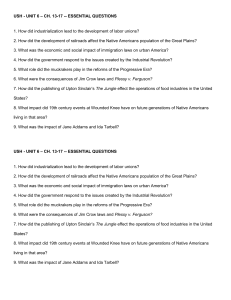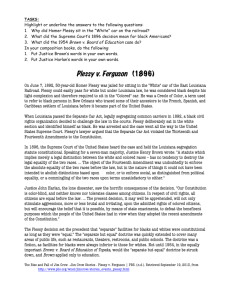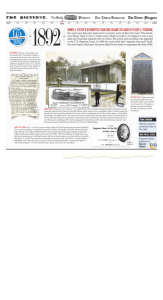Plessy V. Ferguson Worksheet - Boone Community School District
advertisement
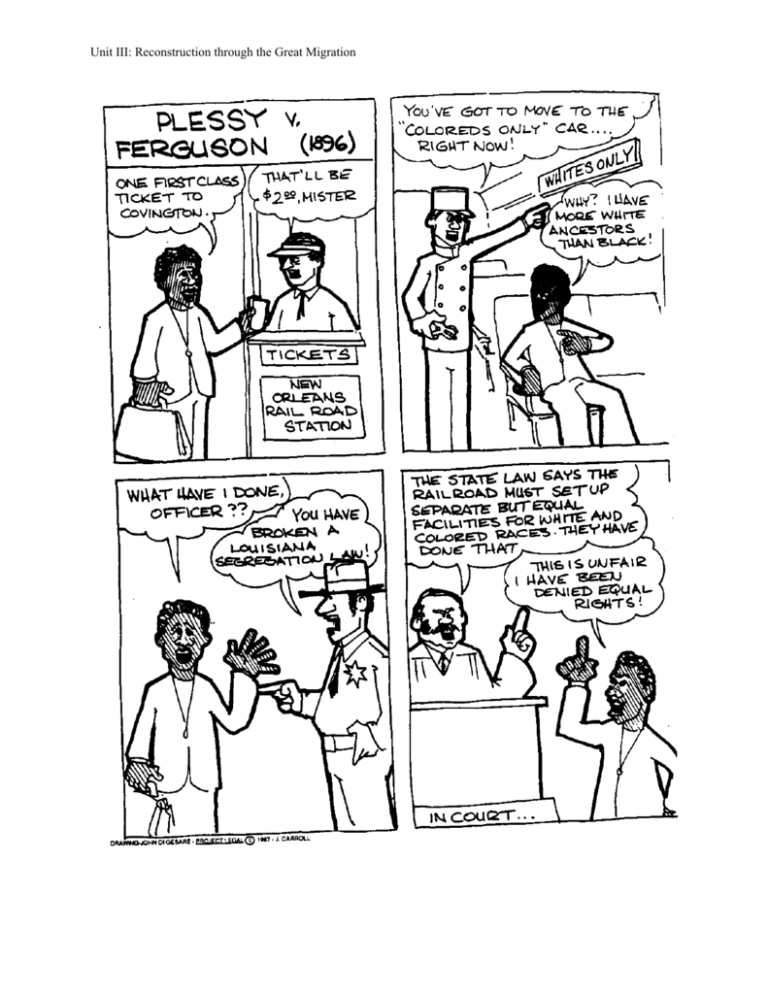
Unit III: Reconstruction through the Great Migration Unit III: Reconstruction through the Great Migration Plessy V. Ferguson Introduction http://www.streetlaw.org//en/Case.4.aspx Background Information http://www.streetlaw.org//en/Page.Landmark.Plessy.background.one.aspx Impact of Plessy V. Ferguson http://www.streetlaw.org//en/Page.Landmark.Plessy.activities.impact.aspx Does Treating People Equally Mean Treating Them the Same? http://www.streetlaw.org//en/Page.Landmark.Plessy.activities.equal.aspx Questions to Answer: I. Introduction 1.Describe Homer Plessy. Who was he and why was he important? 2.Why couldn’t he sit in the seat he bought? II.Background Information 3. What law did Homer Plessy violate? How did Plessy violate this law? 4.What rights do the Thirteenth and Fourteenth Amendments provide? Why did Plessy believe that the Separate Car Act violated these rights? 5.Judge Ferguson decided that the state could make laws for railroad companies that traveled within the state but not for those that traveled between states. On what basis can Judge Ferguson treat these two situations differently? 6.What claim did Plessy make to the Louisiana State Supreme Court? How did his claim reflect on his argument that his Fourteenth Amendment rights were violated? 7.Do you think it is possible for blacks and whites to be separate and equal? Why or why not? If so, describe a situation where people can be separate, but equal. III. Impact of Plessy V. Ferguson 8.Think about the situations listed on this website. IV.Does Treating People Equally Mean Treating Them the Same? 9. What would it mean to treat people equally in the following situations? a)A man and a woman apply for a job as a shoe sales person. What would the employer have to do to treat these two applicants equally? b)Two patients come to a doctor with a headache. The doctor determines that one patient has a brain tumor and the other patient has a run-of-the mill headache. What would the doctor have to do to treat these two patients equally? c)Two students try to enter a school that has stairs leading to the entrance. One student is handicapped and the other is not. What would the school have to do to treat these two students equally? d)Two students live in the same school district. The students are the same age, but they are different races. What does the school district have to do to treat these two students equally.
